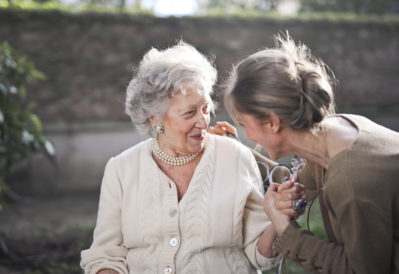I just met a woman who has difficulty talking to her husband about her fears. She was recently diagnosed with Parkinson’s disease and wants to plan for the future. She is looking at the practicalities of living in a multi level home with steps and the practicality of leaving her husband to care for their small children. The diagnosis was an unexpected shock and she feels she needs to move forward in making plans. Her husband is immobilized and has difficulty talking about the reality of the situation. Her physician isn’t supportive or offering hopeful or practical suggestions about day to day life. She can’t talk about the subject without occasionally breaking down. I wonder what I would do in her situation. Would I be as strong? I can be strong in consulting with families because their reality is not my reality, even though I am often overcome by the emotion of the situation. I can put myself back years ago at 3 am when the phone rang and my brother told me my mother had just passed away or when I saw my active, humorous uncle laying prone in a nursing home bed unable to speak or move due to a recent stroke. Or just days ago when I rushed to the hospital emergency room to meet a client who was deemed “unresponsive” and the feeling of total relief and held back tears when I took her hand in mine and she said hello as doctors and nurses surrounded her. Caring for others isn’t easy. We can all just do the best we can and provide the highest degree of compassion as possible. Those who can’t talk about the reality of situations are filled with fear. Sometimes it’s hard not to let our imagination run free and view this as cruelty or lack of caring. Family members need as much compassion as the individual with the diagnosis.
Talking about practicalities of growing old and health problems difficult
by Pamela Wilson | | Caregiving | 0 comments



